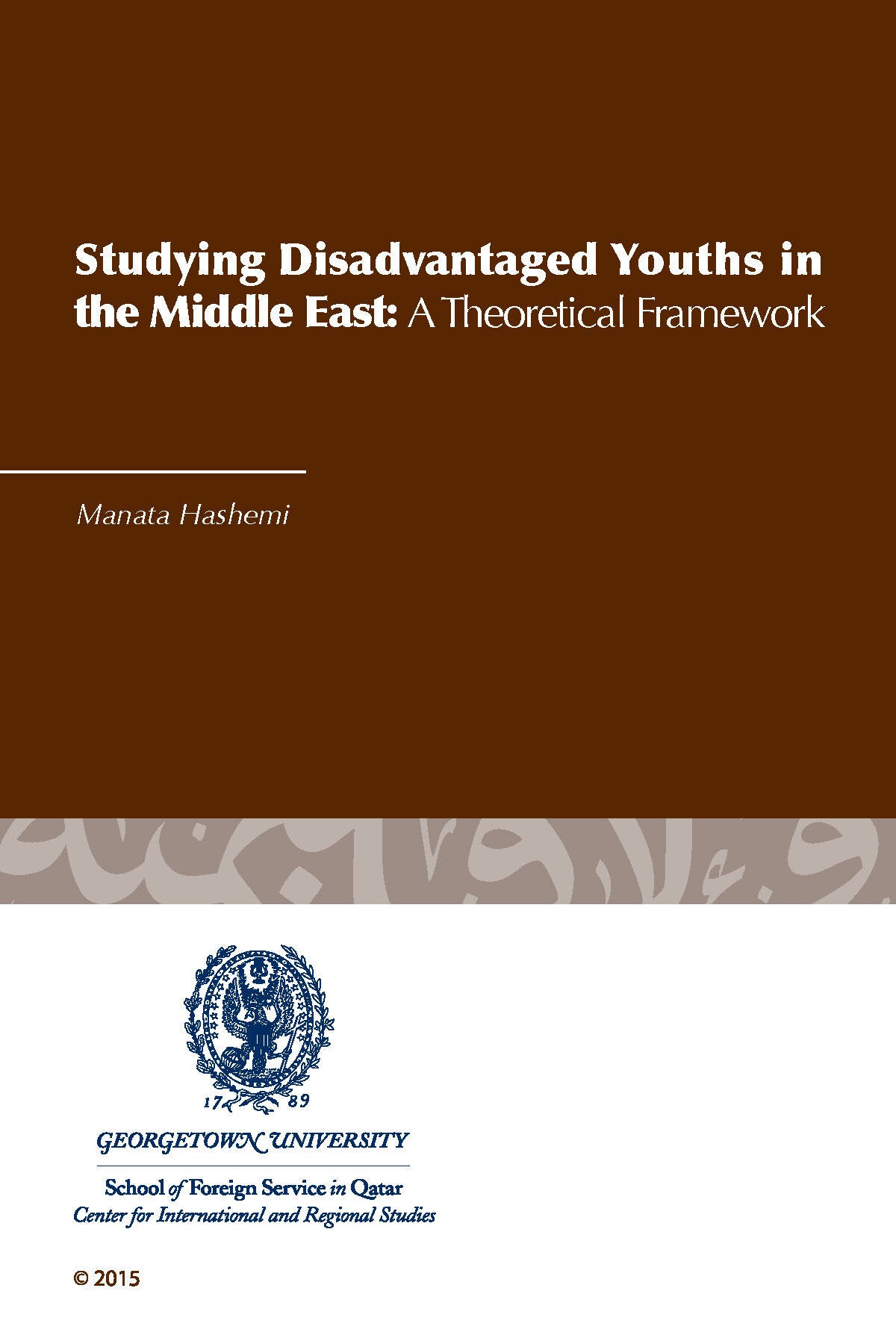Studying Disadvantaged Youths in the Middle East: A Theoretical Framework

To cite this publication: Manata Hashemi, “Studying Disadvantaged Youths in the Middle East: A Theoretical Framework,” CIRS Occasional Paper no. 16 (Doha, Qatar: Center for International and Regional Studies, 2015).
Disproportionate levels of youth unemployment and economic marginalization in the Middle East have prompted many regional observers to conclude that socioeconomically disadvantaged Middle Eastern youth are more prone to radicalization and thereby constitute a threat to national and international security. The general consensus in these accounts is that low levels of occupational opportunities leave poor youth more disposed to frustration and fatalism, which in turn are strongly linked to radical politics. Alternatively, scholars in the language of rational choice argue that these young people engage in a deliberate calculation of means and ends in order to attain the power and wealth necessary for upward mobility. These scholars posit poor youth as rational, autonomous agents whose goals are defined by individual interests and preferences. However, these respective theories are unable to account for 1) the absence of political radicalism among poor youth in many countries of the Middle East, and 2) the presence of seemingly irrational acts among these youth that neither maximize self-interest, nor necessarily reflect individual preferences. Given the shortcomings of each of these prevailing theories, this paper, instead, synthesizes these two approaches and assesses the social conduct of poor youth in the Middle East from the perspective of aspirations-bounded rationality. From this vantage point, the behaviors of poor youth are not determined by individual economic interests or by pure emotion, but by aspirations. This paper proposes that these youth struggle and create strategies to improve their lives that are conditioned by experience and observation of those who inform their social worlds.